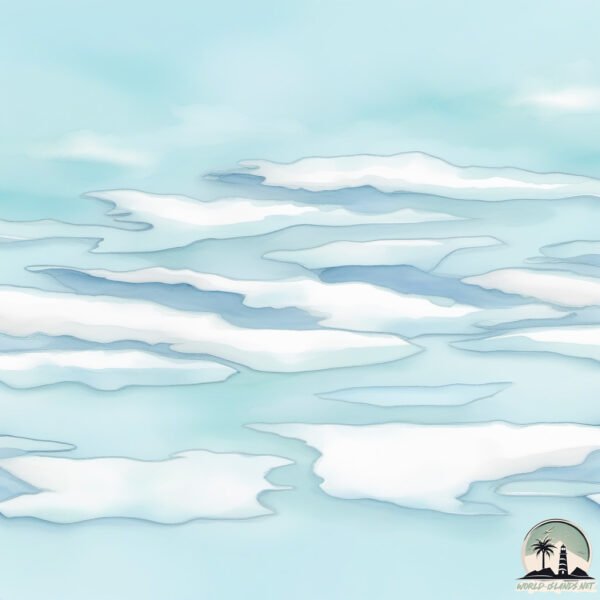Ziegler

Welcome to Ziegler, a Polar island in the Barentsz Sea, part of the majestic Arctic Ocean. This guide offers a comprehensive overview of what makes Ziegler unique – from its geography and climate to its population, infrastructure, and beyond. Dive into the details:
- Geography and Size: Explore the island’s size and location.
- Climate and Weather: Weather patterns and temperature.
- Topography and Nature: Uncover the natural wonders of the island.
- Infrastructure and Travelling: Insights on reaching, staying, and making the most of your visit.
- News and Headlines: Latest News.
Geography and size of Ziegler
Size: 376.6 km²
Coastline: 216.7 km
Ocean: Arctic Ocean
Sea: Barentsz Sea
Continent: Europe
Ziegler is a Large Island spanning 377 km² with a coastline of 217 km.
Archipel: Franz Josef Land – A Russian archipelago in the Arctic Ocean, known for its glaciated landscape and as a base for polar expeditions.
Tectonic Plate: Eurasia – One of the world’s largest tectonic plates, the Eurasian Plate covers a significant portion of Europe and Asia. It’s characterized by diverse geological features, including the Ural Mountains, the European Plain, and the Himalayas formed from its collision with the Indian Plate.
The geographic heart of the island is pinpointed at these coordinates:
Latitude: 80.95875601 / Longitude: 57.37234183
Climate and weather of Ziegler
Climate Zone: Polar
Climate Details: Ice Cap
Temperature: Cold
Climate Characteristics: The ice cap climate is the most extreme of the polar climates, characterized by a permanently frozen landscape. Temperatures rarely, if ever, rise above freezing, resulting in a barren, ice-covered environment with very little precipitation and no plant or animal life.
Topography and nature of Ziegler
Timezone: UTC+04:00
Timezone places: Europe/Moscow
Max. Elevation: 522 m
Mean Elevation: 225 m
Vegetation: Snow and Ice Covered
Tree Coverage: 7%
The mean elevation is 225 m. The highest elevation on the island reaches approximately 522 meters above sea level. The island is characterized by Plateau: Elevated flatlands rising sharply above the surrounding area, with a maximum elevation over 500 meters but a mean elevation less than 300 meters, forming unique highland areas on islands.
Dominating Vegetation: Snow and Ice Covered
These areas are permanently or seasonally covered in snow and ice, with little to no vegetation, such as polar regions and high mountains. Ziegler has a tree cover of 7 %.
Vegetation: 4 vegetation zones – Diverse Island
Four distinct vegetation zones mark these islands as ecologically diverse. They might feature varied landscapes such as forests, beaches, grasslands, and rocky areas. Such diversity reflects the island’s complex ecological interactions and varied habitats, which can support a rich array of wildlife and plant species.
Infrastructure and Travelling to Ziegler
Does the island have a public airport? no.
There is no public and scheduled airport on Ziegler. The nearest airport is Amderma Airport, located 1289 km away.
Does the island have a major port? no.
There are no major ports on Ziegler. The closest major port is MEZEN, approximately 2151 km away.
The mean population of Ziegler is 0 per km². Ziegler is Uninhabited. The island belongs to Russia.
Continuing your journey, Greely is the next notable island, situated merely km away.
FRANZ JOSEF LAND, Salisbury & Champ Island: Amazing Planet



Russia is classified as Emerging region: BRIC: Brazil, Russia, India, and China – Economies noted for their rapid growth and increasing influence on global affairs. The level of income is Upper middle income.
News – Latest Updates and Headlines from Ziegler
Stay informed with the most recent news and important headlines from Ziegler. Here’s a roundup of the latest developments.
Please note: The data used here has been primarily extracted from satellite readings. Deviations from exact values may occur, particularly regarding the height of elevations and population density. Land area and coastline measurements refer to average values at mean high tide.
